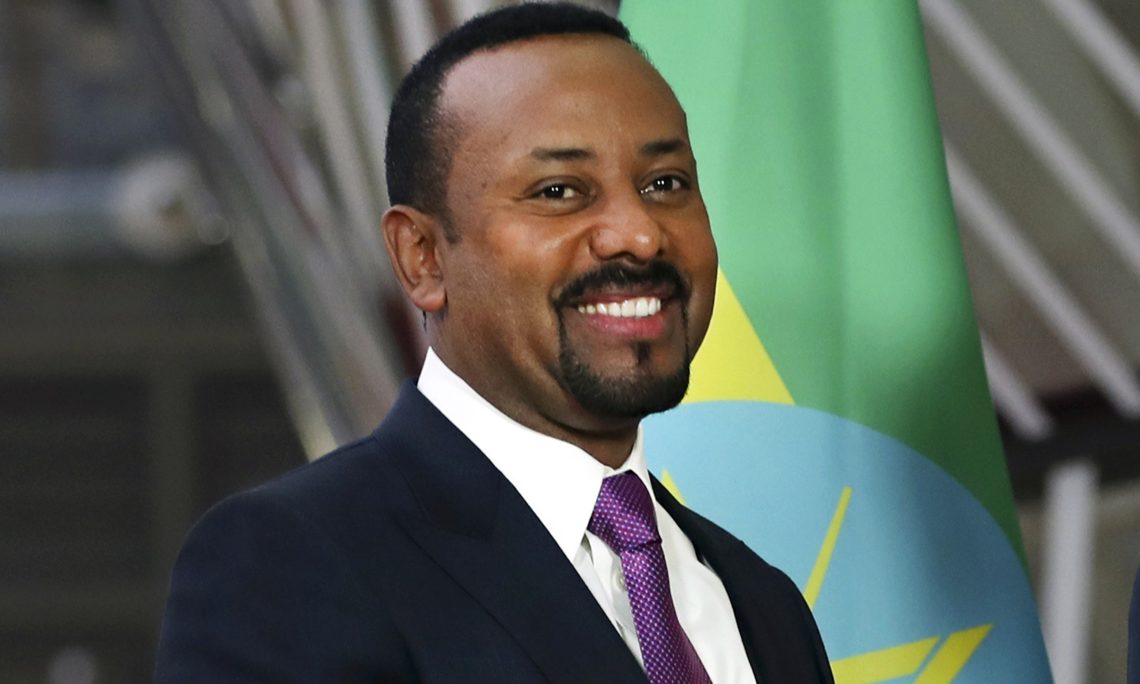Another senseless war in Africa
Just when many on the continent and indeed the world thought that Africa was moving away from being the theatre of senseless wars and conflicts, another has broken out in Ethiopia. On November 3, 2020, Ethiopian Prime Minister, Ahmed Abiy, ordered his troops into Tigray region, following an attack on an army garrison by the […]

Ethiopian Prime Minister, Ahmed Abiy
Just when many on the continent and indeed the world thought that Africa was moving away from being the theatre of senseless wars and conflicts, another has broken out in Ethiopia. On November 3, 2020, Ethiopian Prime Minister, Ahmed Abiy, ordered his troops into Tigray region, following an attack on an army garrison by the forces of the Tigray People Liberation Front (TPLF).
The conflict is rooted in a long-standing tension between Ethiopia’s government and the TPLF, which was the dominant political force in the country until Mr Abiy came to power in 2018 and introduced far-reaching reforms. During the reforms, many top officials of the Front lost out in government positions.
- World AIDS Day: ‘People Rather Sit With COVID-19 Patients Than An HIV Positive Person’
- Terrorism May Persist For Another 20 Years In Nigeria – Buratai
In June, Mr Abiy postponed a national election because of the coronavirus, which further deteriorated the relations between the two former allies who fought a long war to topple the regime of Mengistu Haile Mariam in 1991. In September, the TPLF held its own election, which the government declared “illegal”. Things came to a head following the attack on an army formation in the region.
From all indications, the conflict is not likely to end soon. The leader of the TPLF, Debretsion Gebremichael, was quoted as saying that his troops had withdrawn into the mountains and would continue with the attack on the federal forces.
The conflict may likely widen following the accusation by the TPLF against the government of Eritrea of backing the federal troops. In fact TPLF forces were reported to have fired rockets into the Eritrean capital at the height of the conflict.
By November 30, when Abiy declared that the federal troops had taken over the Tigray capital, Mekelle, hundreds of civilians were reported to have been killed in the senseless war. The United Nations High Commissioner for Refugees (UNHCR) also reported that 46,000 Ethiopians have moved into neighbouring Sudan, fleeing from the war. For Sudan, which is battling its own economic difficulties, this will certainly stretch it further.
For many obvious reasons, this is a war which should not have happened in the first place. First, the two antagonists have been allies for many years and waged a long-drawn war to oust a dictatorship. Moreover, issues that led to the present conflict could have been resolved politically.
Secondly, Prime Minister Abiy, just last year, won the Nobel Peace Prize for his role in the resolution of the age-long conflict between his country and Eritrea. The resolution of the conflict has resulted in economic and social development in the two countries. While Eritrea enjoys a rail network extended to its capital from Addis Ababa, Ethiopia now has access to the ports in Eritrea.
Thirdly, the African Union, which has its headquarters in Addis Ababa, declared 2020 as the year of “Silencing the Gun”. And the aim is to ensure all conflicts within the continent are brought to an end. Africa should no longer be seen as a theatre of war. It is indeed a shame that the host of the continental body is going contrary to this declaration.
There is no gainsaying that Africa needs to do all it can to move away from conflicts. For more than six decades Africans suffered from unnecessary wars which negative effects are still being felt. While other nations are moving fast to improve the lives of their citizens, the story from Africa has been that of hunger, disease and conflicts.
It is more worrying that there is a deafening silence from the African Union headquarters on this conflict. The AU should strongly come out to intervene to stop this unnecessary war otherwise it may not have the moral courage to preach peace amongst other members.
More importantly, both leaders in Addis Ababa and Mekelle must realise that this dispute can only be resolved by sitting at the table. War will only deny their people the little progress they are enjoying after long years of conflict.
